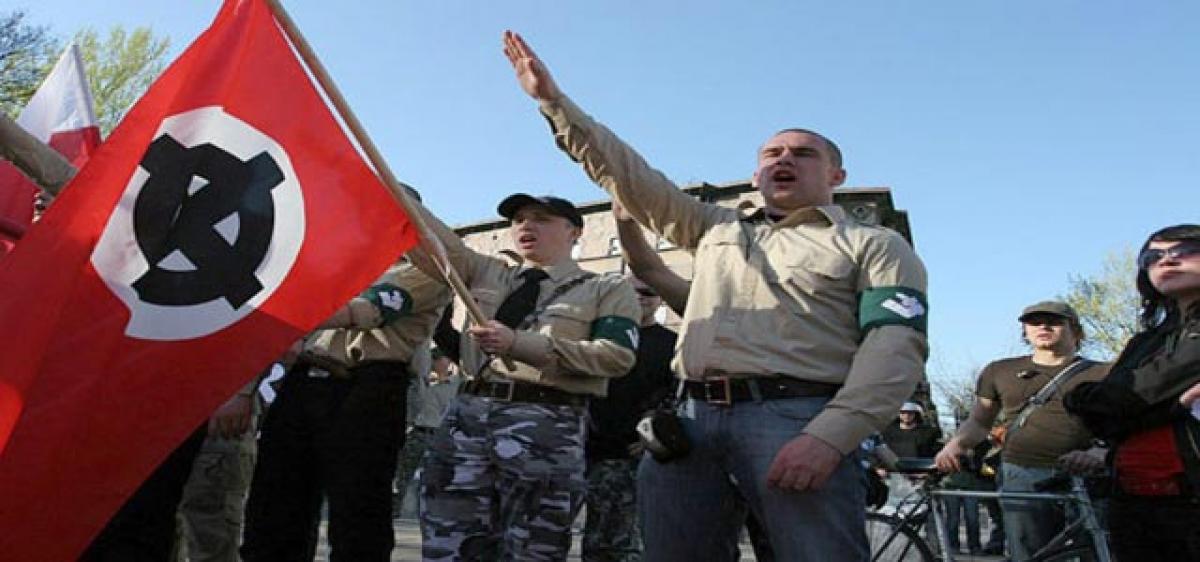Far-right wave sweeping Europe

The decisive rejection last week in the referendum for reform by 41-yearold Italian Prime Minister Matteo Renzi has once again plunged Italy and the European Union into a crisis.
The decisive rejection last week in the referendum for reform by 41-yearold Italian Prime Minister Matteo Renzi has once again plunged Italy and the European Union into a crisis. It underlined the inherent danger in calling for popular endorsement through referendum of any agenda for political or economic change.
- EU future at stake Rising tide of extreme right wing populist politicians across Europe
- Italian PM Matteo loses referendum on reforms
- Germany’s Merkel looks vulnerable for 2017 poll
- French President Hollande not seeking second term
This was clear after Brexit in UK and now in Italy. Such strategic blunders unfortunately cannot be reversed. They often result in an abrupt end of the political careers of the respective Prime Ministers who gambled and lost. Political analysts have noted that opposition to the Italian proposals came from the same broad coalition that ensured victory for Brexit: anti-establishment sentiments, anger at globalisation, the migrant issue and open borders, and increased scepticism on the wisdom of a Europe without frontiers.
A broadly similar coalition ensured the victory of Donald Trump. The problem is how to turn the tide before it is too late. In Italy's case, the result of the vote primarily benefited right-wing parties such as the Five Star Movement which supports a referendum to determine whether Italy should give up the euro. The popular mood in the third-largest European economy seems to be to go it alone rather than with Europe.
It was small comfort to the European liberal left wing and socialist parties that a few hours earlier, Austrian voters, faced with a stark choice, selected as their Head of State Alexander Van der Bellen of the Green Party rather than Norbert Hofer of the far right Freedom Party which had been established by the Nazis. Political developments across Europe are worrisome. In Germany, Chancellor Angela Merkel, once riding high in the polls, seems increasingly vulnerable in elections scheduled for 2017.
In France, for the first time in the history of the Fifth Republic, an incumbent President, Francois Hollande, is not seeking a second term. With his popularity rating in the teens, this was a sage decision. It represents a candid acknowledgement by him that he is acutely aware of the inherent danger of the candidature of an unpopular President, handicapped by incumbency, standing for an election which could divide the liberal, left-wing vote and ensure the victory of Marine Le Pen.
The French political scenario is complex, with the far right National Front leader calling for a French referendum on European Union membership shortly after Brexit. While it seems unlikely that Frexit will happen since France, unlike the UK, has always been firmly anchored in Europe and sees EU membership as a way of maintaining its great power status, the result of the French presidential election in 2017 seems disturbingly uncertain. The first round of the vote will be held on April 23. The final outcome will be decided in a run-off election which will take place on May 7.
While the centre-right former Prime Minister Francois Fillon is being projected by the media as the favourite, having surprisingly humbled former Prime Minister Alan Jupp and former President Nicholas Sarkozy in the primaries, there are many imponderables which still remain. The Socialist Party is divided; Manuel Valls has stood down as Prime Minister in order to put himself forward as the Socialist Party candidate for the presidential race. The Socialist Party will hold its presidential primary in January.
There are ominous indications that Europe has already moved to the ideological right, threatening the integrity and future of the EU itself. The 160-kilometre- long chain-link and razor-wire fence on Hungary's southern border vividly reflects the rising tide of extreme right wing populist politicians across Europe with their retrograde xenophobic, racist ideologies accompanied by attacks on European liberal values, symbolised by open markets and frontiers and free movements of people.
If the founders of the EU and its liberal ideals – Italy, Germany, the Netherlands, Belgium and France – also move to the far right in 2017, it could sound the death knell for the Schengen regime and of the cherished ideals of European integration and of the European Union itself.
By BHASWATIMUKHERJEE








